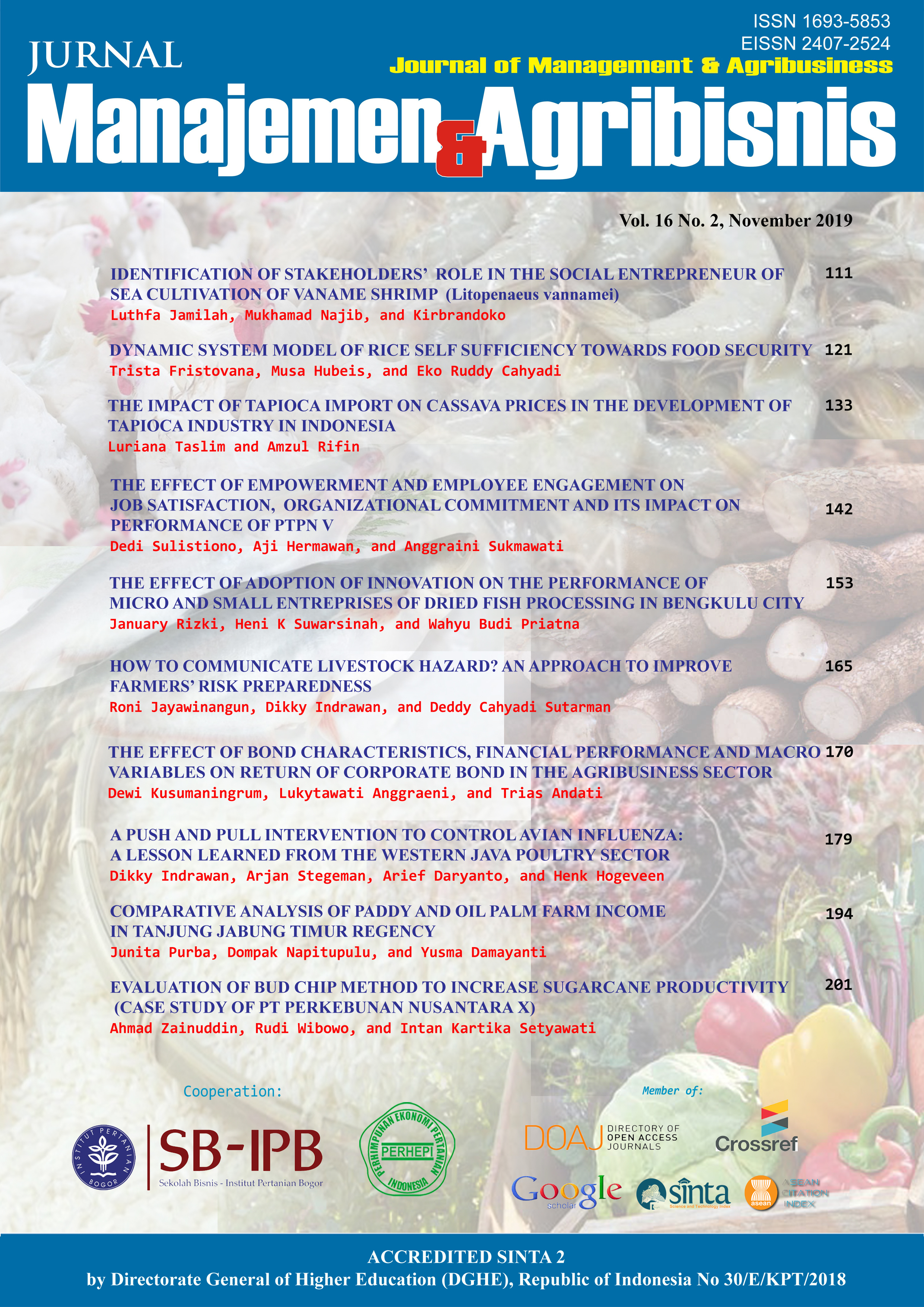IDENTIFICATION OF STAKEHOLDERS' ROLE IN THE SOCIAL ENTREPRENEUR OF SEA CULTIVATION OF VANAME SHRIMP (Litopenaeus vannamei)
Abstract
Mariculture of vaname shrimp, which is based on the social entrepreneur, is one of the strategies to improve the coastal welfare community. This concept focuses on enhancing the community's economy and environmental sustainability. To succeed in the business, an active role and stakeholder involvement is needed. This study aims to identify and map the role of stakeholders that influences business activities. Data analysis is carried out descriptively based on the results of identification, the typology classification, and the analysis of Dependence Mapping. The results of the study state that the role of stakeholders is divided into the internal and the external. The typology classification shows the educational institutions expect the role of definite owned by the group leader, the research and suppliers, the latent-discretionary by operational and marketing executives, the expected-dangerous by local governments, provincial governments and community leaders, the latent-dormant by the mass media and NGOs, the latent-discretionary by private companies, the latent demanding by financial institutions and MSMEs, and the expected-dependent by end consumers. The groups of stakeholders that influence the business are 1) High Interdependence consisting of group leaders, operational executors, finance and marketing, suppliers and private companies, and 2) Power Stakeholders consisting of end consumers, community leaders, local governments, educational and research institutions.
Keywords: social entrepreneur, stakeholder, vaname, dependence mapping
Authors
Authors who publish with this journal agree to the following terms:
- Authors retain copyright and grant the journal right of first publication with the work simultaneously licensed under a Creative Commons Attribution License that allows others to share the work with an acknowledgement of the work's authorship and initial publication in this journal.
- Authors are able to enter into separate, additional contractual arrangements for the non-exclusive distribution of the journal's published version of the work (e.g., post it to an institutional repository or publish it in a book), with an acknowledgement of its initial publication in this journal.
- Authors are permitted and encouraged to post their work online (e.g., in institutional repositories or on their website) prior to and during the submission process, as it can lead to productive exchanges, as well as earlier and greater citation of published work (See The Effect of Open Access).

